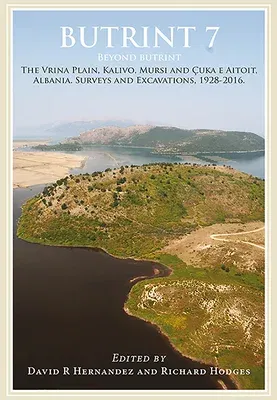This volume brings together unpublished Italian and Albanian
archaeological reports and new archaeological studies from recent
fieldwork that throw new light on the archaeology and history of the
Pavllas River Valley, the Mediterranean alluvial plain in the territory
of Butrint, ancient Buthrotum, in southwestern Albania. It gives
prominence for the first time to two important sites, Kalivo and Çuka e
Aitoit, which are here reinterpreted and shown to have played major
roles in the early history of Butrint as it evolved in the later first
millennium BC to emerge as the key city of Chaonia in Epirus. Butrint 7
also presents the full excavation report of the Late Bronze Age and
Hellenistic fortified site of Mursi, in addition to other Butrint
Foundation surveys and excavations in the hinterland of Butrint,
including the Roman villa maritima at Diaporit, the villa suburbana
on the Vrina Plain, and Roman sites on Alinura Bay and at the Customs
House, as well as new surveys of the early modern Triangular Fortress
and a survey to locate the lost Venetian village of Zarópulo. The volume
also features a new study of the Hellenistic bronze statuette of Pan
found on Mount Mile and of his sanctuary at Butrint. The volume
concludes with a comprehensive reassessment of the Pavllas River Valley
in relation to Butrint, from the Palaeolithic to the modern eras,
examining how dominion, territory, environment and the 'corrupting sea'
reshaped Butrint and its fluvial corridor diachronically and
particularly brought profound territorial, economic and social
alterations under the Roman Empire.

